Much is being made of the fact that sales of carbonates are struggling, however the category is still the biggest within the massive soft drinks market.
Cola is the biggest selling carbonate and it enjoyed value growth of 2% last year (Nielsen Scantrack MAT December 30, 2006). However, its value share is down from 22% to 21%, worth £1.2bn. Meanwhile, the fruit-flavoured carbonates sector continues to struggle, declining by 9% to be worth £328m, while non-fruit flavoured carbonates were up 1% to be worth £211m.
According to AC Nielsen figures, carbonated soft drinks account for 57.5% of all soft drink sales in impulse outlets.
Coke is still the number one soft drink brand, worth more than £485m according to AC Nielsen figures while Diet Coke accounts for 76% of all diet cola value sales.
The big success story of late, though, is Coca-Cola Zero or 'Bloke Coke' as it has become known. According to Anita Huntley, head of marketing at Coca-Cola Enterprises (CCE), the brand has performed particularly well in the independent retail channel, where she says it has delivered incremental sales growth of £7.6m after only nine months in the marketplace.
"The soft drinks category continues to grow at 7.23% in value sales through impulse and 3.69% value sales in independents (AC Nielsen, 52 weeks to January 27, 2007). Well-known brands will always sell well. People are also increasingly enjoying diet versions of carbonates and together Diet Coke and Coca-Cola Zero are growing at 8.7% in total and 10.4% in impulse." (AC Nielsen total coverage 52 weeks ended January 13, 2007).
AC Nielsen has proclaimed Zero as the most successful new food and beverage launch of the past three years. In the first 16 weeks after its launch, it achieved sales of £24.1m - more than double the size of the second most successful new product (Mini Pringles at £11.9m).
However, the big news from CCE this summer is the launch of limited-edition Coca-Cola Orange in three key pack sizes: 500ml and 2ltr bottles and six-packs of 330ml cans. These will all be on shelf from July. The launch will be supported by a £2.5m marketing campaign throughout July including product sampling and outdoor advertising.
CCE says its limited-edition flavour strategy aims to drive excitement in the category. It points to the success of Coca-Cola with Lime last summer, where according to TNS data, more than 40% of its sales were from new buyers.
Refreshing fruit
Rubicon is one company that is enjoying success in the struggling fruit carbonates sector. Its current carbonates range is experiencing 40% year-on-year growth thanks to the launch of products such as sparkling 'super juice' pomegranate. It now hopes to add to this growth by relaunching its 500ml PET sparkling juice drinks with a new formulation featuring spring water and new graphics.
The relaunch is backed by a £3.8m spend including TV ads, national press and radio advertising.
Diet and no-added-sugar lines are must-stocks in any c-store, which is why Landmark Wholesale recently launched its No Added Sugar carbonates. Jon Burton, trading controller responsible for soft drinks, says Landmark worked closely with supplier Silver Spring to get the range right.
There are five varieties: lemonade, cherryade, orangeade, limeade and strawberryade. Each is pricemarked at 59p, lower than Landmark's standard carbonate range, to give retailers improved margins.
Cola is the biggest selling carbonate and it enjoyed value growth of 2% last year (Nielsen Scantrack MAT December 30, 2006). However, its value share is down from 22% to 21%, worth £1.2bn. Meanwhile, the fruit-flavoured carbonates sector continues to struggle, declining by 9% to be worth £328m, while non-fruit flavoured carbonates were up 1% to be worth £211m.
According to AC Nielsen figures, carbonated soft drinks account for 57.5% of all soft drink sales in impulse outlets.
Coke is still the number one soft drink brand, worth more than £485m according to AC Nielsen figures while Diet Coke accounts for 76% of all diet cola value sales.
The big success story of late, though, is Coca-Cola Zero or 'Bloke Coke' as it has become known. According to Anita Huntley, head of marketing at Coca-Cola Enterprises (CCE), the brand has performed particularly well in the independent retail channel, where she says it has delivered incremental sales growth of £7.6m after only nine months in the marketplace.
"The soft drinks category continues to grow at 7.23% in value sales through impulse and 3.69% value sales in independents (AC Nielsen, 52 weeks to January 27, 2007). Well-known brands will always sell well. People are also increasingly enjoying diet versions of carbonates and together Diet Coke and Coca-Cola Zero are growing at 8.7% in total and 10.4% in impulse." (AC Nielsen total coverage 52 weeks ended January 13, 2007).
AC Nielsen has proclaimed Zero as the most successful new food and beverage launch of the past three years. In the first 16 weeks after its launch, it achieved sales of £24.1m - more than double the size of the second most successful new product (Mini Pringles at £11.9m).
However, the big news from CCE this summer is the launch of limited-edition Coca-Cola Orange in three key pack sizes: 500ml and 2ltr bottles and six-packs of 330ml cans. These will all be on shelf from July. The launch will be supported by a £2.5m marketing campaign throughout July including product sampling and outdoor advertising.
CCE says its limited-edition flavour strategy aims to drive excitement in the category. It points to the success of Coca-Cola with Lime last summer, where according to TNS data, more than 40% of its sales were from new buyers.
Refreshing fruit
Rubicon is one company that is enjoying success in the struggling fruit carbonates sector. Its current carbonates range is experiencing 40% year-on-year growth thanks to the launch of products such as sparkling 'super juice' pomegranate. It now hopes to add to this growth by relaunching its 500ml PET sparkling juice drinks with a new formulation featuring spring water and new graphics.
The relaunch is backed by a £3.8m spend including TV ads, national press and radio advertising.
Diet and no-added-sugar lines are must-stocks in any c-store, which is why Landmark Wholesale recently launched its No Added Sugar carbonates. Jon Burton, trading controller responsible for soft drinks, says Landmark worked closely with supplier Silver Spring to get the range right.
There are five varieties: lemonade, cherryade, orangeade, limeade and strawberryade. Each is pricemarked at 59p, lower than Landmark's standard carbonate range, to give retailers improved margins.




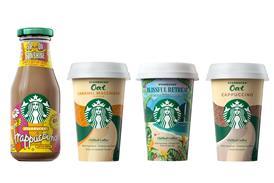
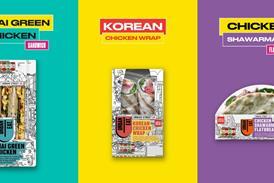
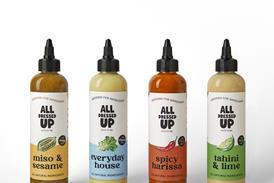










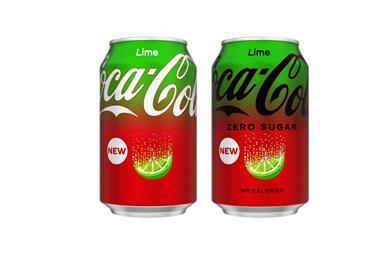
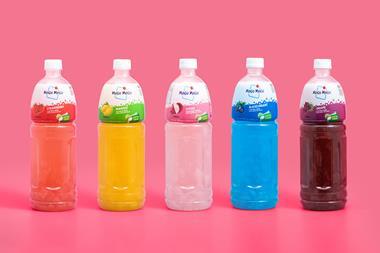
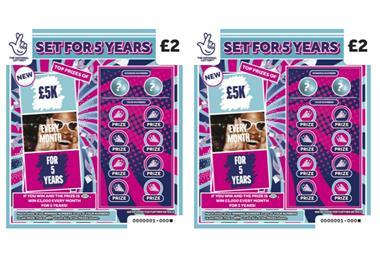



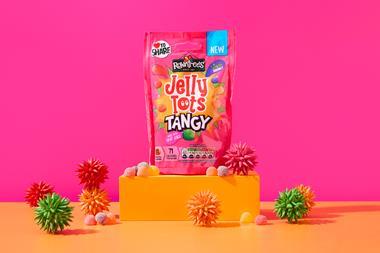
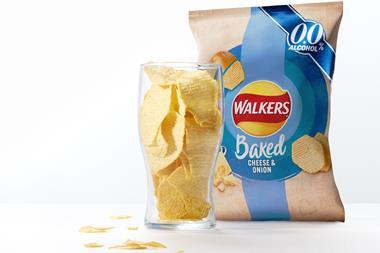
No comments yet